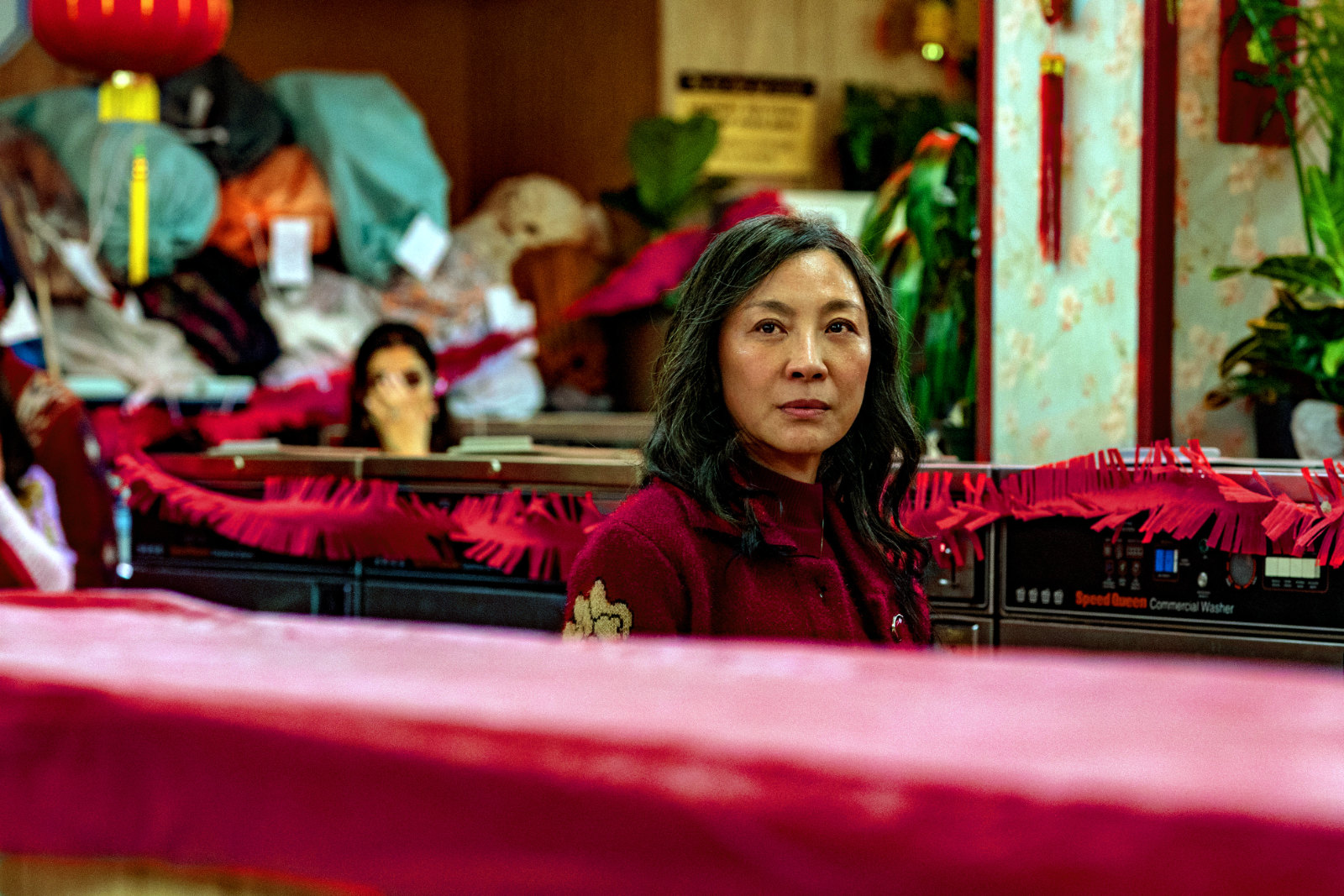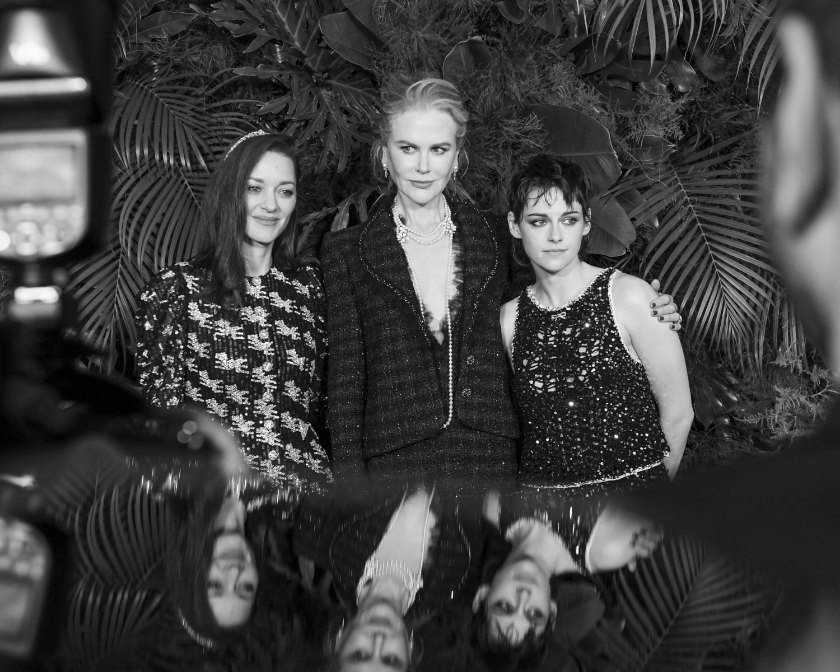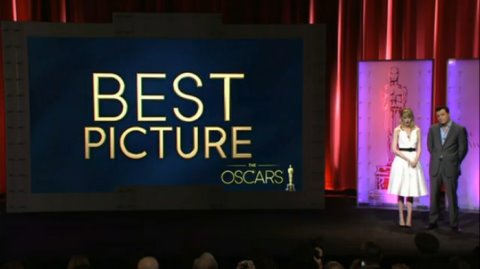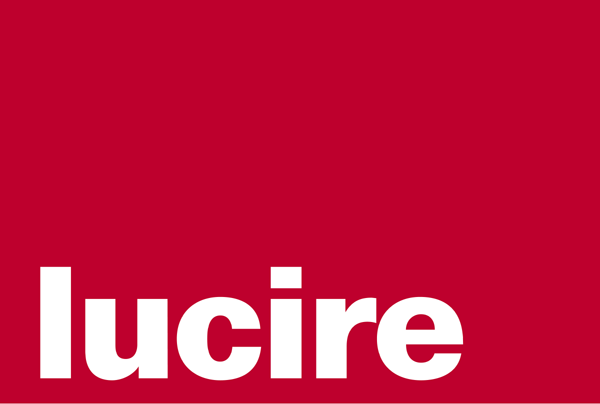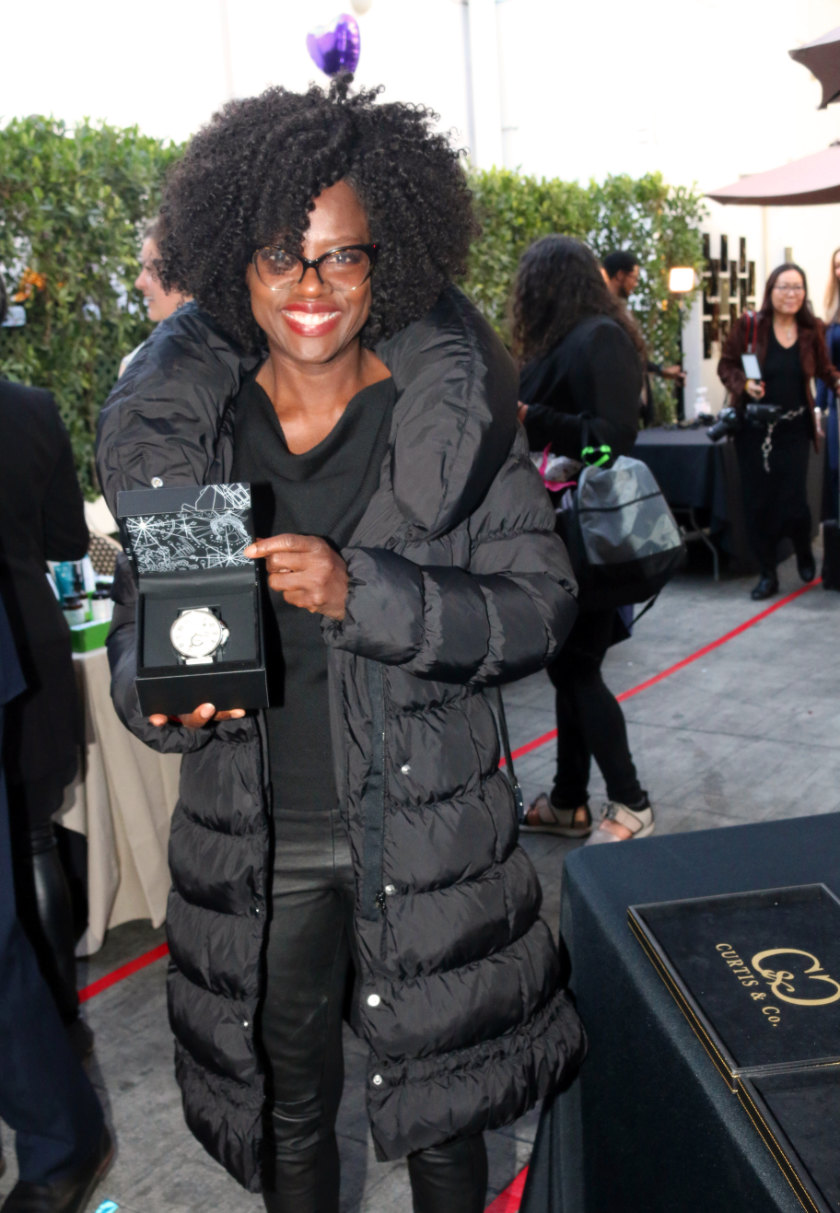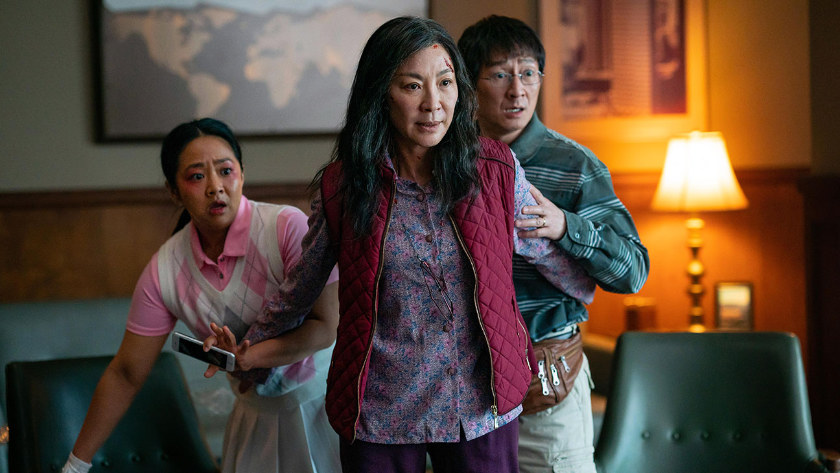
A24
If you asked me who I was rooting for in this year’s Oscars, it was an easy answer: Everything Everywhere All at Once.
The Michelle Yeoh starrer took home Best Picture at the 95th Academy Awards, with Yeoh winning Best Actress, Ke Huy Quan winning Best Supporting Actor, Jamie Lee Curtis winning Best Supporting Actress, Paul Rogers for editing, and Daniel Scheinert and Daniel Kwan (collectively, ‘Daniels’) winning for their screenplay and directing. With seven Oscars, it’s the most-awarded film since Danny Boyle’s Slumdog Millionaire.
At its heart, this whacky parallel-universe action-comedy is a family story, and if it weren’t for Daniels changing tack and making Yeoh the lead, it would have been a very different film.
When Jackie Chan was unavailable, they refocused the story around Yeoh, and it developed from there, arguably with more depth. After all, we’ve seen a Chinese male lead dealing with parallel universes before (Jet Li, in The One), but there’s something about setting it in a laundromat that brings the tale down to earth.
Since its March 2022 release at SXSW, the buzz steadily grew, and the way this mid-budget flick wound up getting mainstream audiences interested meant A24, the studio behind it, was on to a winner.
Crazy Rich Asians, the last US film I saw with a predominantly Asian cast that did well internationally, might have had some mainstream appeal, but suffered from some hiccups in the way the story flowed. I liked it, but felt there was a layer there that you could only get if you were from a similar culture. On the flip side, the fact the dialogue was largely in English left it feeling lacking for me—probably necessitated by the fact English was the lingua franca in a cast made of people with Chinese, Korean, Japanese and Pinoy descent all trying to appear as a homogeneous bunch. It wasn’t easy for director Jon M. Chu to balance everything and I don’t blame him.
And while Crazy Rich Asians did positively portray an affluent Singaporean family, how many of us could truly relate to being that wealthy?
Cue Everything Everywhere All at Once. You have Michelle Yeoh already speaking Cantonese and Mandarin at the start. There’s the wonderful James Hong, from my own Taishan clan, who deserved some additional honour for his c. 70 years in the movie business. Ke Huy Quan’s acting—after not seeing him for so long—has pathos and it’s great to see him act equally well in both Mandarin and English. Stephanie Hsu is believable in the daughter’s role and instantly relatable as a Chinese-American teenager who was born after her parents emigrated to the States (trust me, you know; I grew up with these kids). It’s founded in some reality: a Chinese immigrant family working hard, bridging cultures, with their own stresses to deal with, all within the context of their host country. It didn’t need westernizing or sanitizing to be palatable because in 2023, people can relate, Chinese or not. We know people like the fictional Wang family. And those who share the immigrant experience, regardless of race, will know the Wangs, too.
Ever since I emigrated with my parents, I longed for little signs of my native Hong Kong. In 1970s New Zealand, there were few. In those pre-YouTube, pre-video cassette days, my connections were the following: magazines and audio cassettes that my parents might have brought with them or which might come inside annual parcels sent by family friends, of items that we had to import since so little was available here; the local whānau, as we went to other families’ homes at weekends; films organized by either film buffs or the expat community; or television programmes that the state broadcaster selected. And not all these were particularly nice, when you look back.
In late 1977, possibly early 1978, my great-uncle heard of a Hong Kong film being shown in a school hall and invited us. It was 1975’s 的士大佬 (The Taxi Driver, predating the Scorsese film) starring David Chiang, a very violent actioner. I was more interested in seeing the street scenes and didn’t take much else in. The screen was tiny, so I assume it was a 16 mm print.
Also around this time was Hong Kong Beat, the BBC documentary about the Hong Kong police, also with some (real) violence. It wasn’t the Hong Kong I knew, the colourful, optimistic, growing metropolis. But that was what local TV programmers had decided we could see here.
You crave those moments when you saw some glimpse of “home” in occidental media, and whenever you did—James Hong speaking Cantonese, Alan Whicker sailing on the QE2 into Hong Kong—you got a buzz. So when your own birth culture meets your adopted, chosen one, you feel happy. And when it’s honoured as it was on Sunday night in Los Angeles, you feel not only happy, but that others accept it and value it as much as their own.
You feel seen: your story might not be the same as the fictional Wang family’s, but the hard work, the need to bridge (and decipher) cultures, and the stress unique to the immigrant experience—especially when you look different to the majority—are familiar. You cherish it, but you didn’t know if others got it. When wins like this happen, it’s a step forward. You suddenly don’t feel as foreign, as much of an outsider. You’re also sticking it to the politicians (I’m looking at you, W. Peters) who hate this country so much, trying to create divisions based on racial lines playing a venomous, toxic, xenophobic game of populism, with suckers in tow. Films like Everything Everywhere All at Once don’t buck the trend, they are the trend. They reflect the right-thinking majority and the fact that they don’t see us as “others”. It’s a valuable reminder of the positive direction that society wishes for and naturally wants for everyone, regardless of creed or colour, especially in confusing times where there are so many forces working against us all.
Jack Yan is founder and publisher of Lucire.

